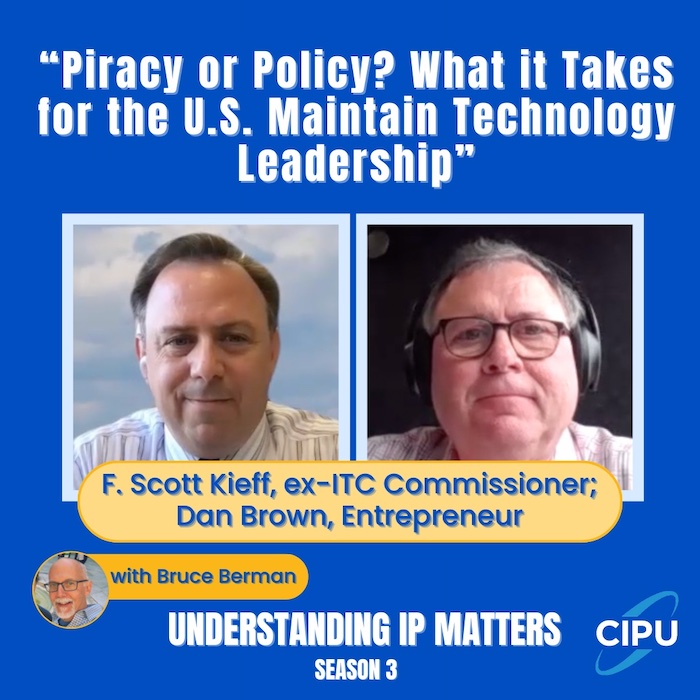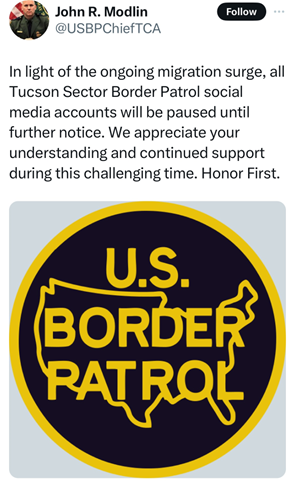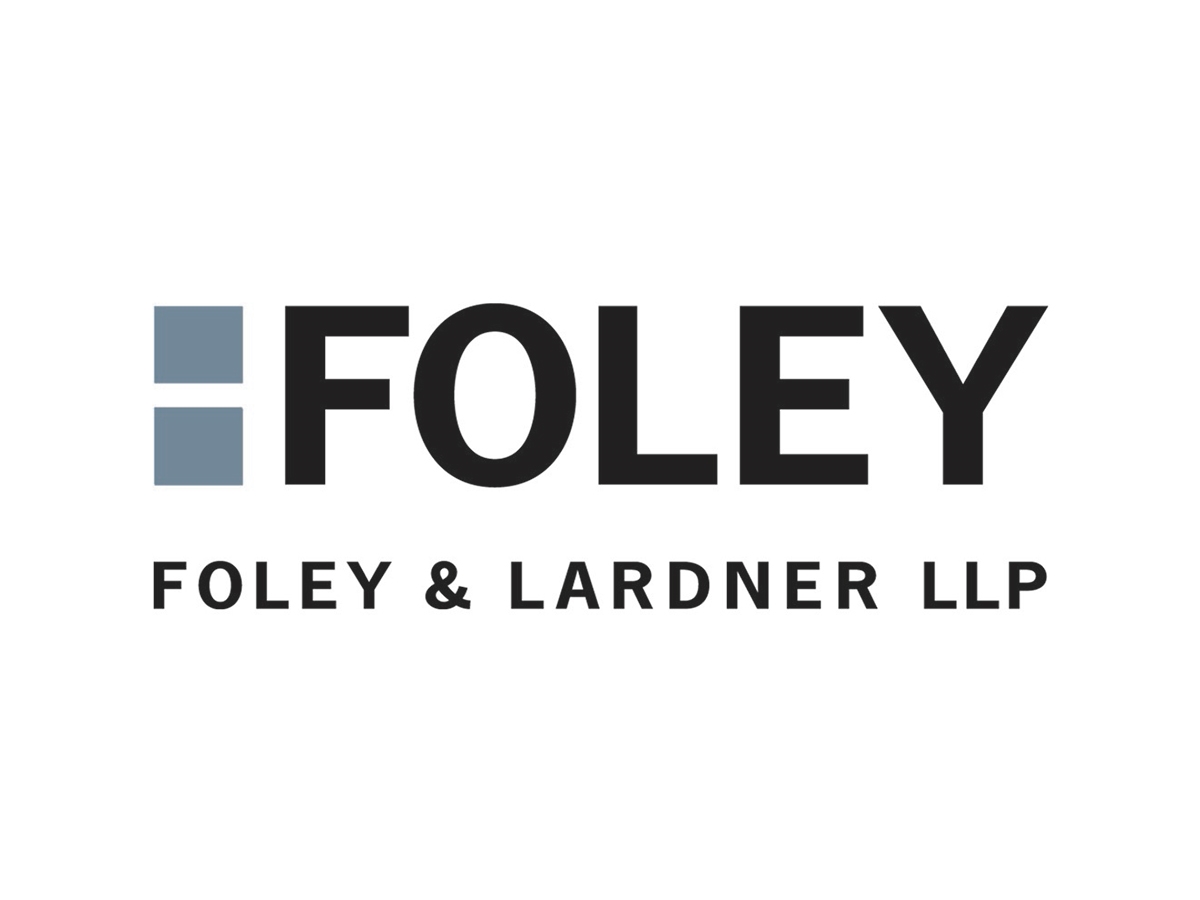Piracy or Policy? Maintaining U.S. Technology Leadership in the Digital Age
Patents are supposed to provide the right to exclude others from practicing an invention. In the United States, this has become extremely challenging for smaller businesses.
For independent inventors, who pour their time, energy, and resources into commercializing a new idea, patents are personal. They need and rely on the leverage that patents have historically offered. For large companies, the decision to forge ahead irrespective of who “owns” an idea is just business. The consequences of efficient infringement are few and far between.
The challenges faced by U.S. inventors who rely on the legal system are well-documented. Suing for patent infringement is not a reliable business strategy, even when willful infringement is found to have occurred, which is rare. What’s an innovator to do?
To discuss what innovation is, who is responsible for it, and what can be done to support innovators — politically, legally, and ethically — Bruce Berman spoke to two Chicago-area natives with decades of hands-on experience with the history, politics, and enforcement of intellectual property rights. His conversation can be heard on Episode 4 of Season 3 of “Understanding IP Matters.”
Dan Brown is an award-winning designer, inventor, and entrepreneur who has received more than 100 utility patents. He serves on the Patent Public Advisory Committee and is a professor at the Segal Design Institute at Northwestern University.
Scott Kieff is a member of the faculty at G.W University Law School. From 2013-2017, he served as a commissioner at the U. S. International Trade Commission, which enforces acts of unfair competition, including IP infringement.
Dan and Scott describe how money in U.S. politics puts the independent inventor community at an obvious disadvantage on Capitol Hill, underscoring the need for a broad coalition with a unified message.
Key Responses
For the big tech companies, the irony is — and this is something that’s very hard for people, even bright people, to understand, investors in particular — they have so many patents. They have tens of thousands of patents! How can they not like them?
Dan Brown: “We have a moral hazard problem in this country around innovation and competition and fair competition in the sense that, everyone wants this investment to create the jobs and economic benefit. The reality is, making money and the short-term drive to make money, [leads to] efficient infringement — and this efficient infringement does not get punished….
Back in the 70s, they passed the Clean Air Act, and it was important because we were polluting like crazy everywhere, but there was no criminal liability. People found that for years they could litigate, and they just fought and paid the fines, but they never cleaned up the air and the water — until, I believe, it was the Reagan administration who made it criminal to avoid this, and all of a sudden, a couple people from the industry I was in went to jail.
All of a sudden, industry found the resources to start cleaning up waterways and cleaning up the air, and we’ve seen a major advancement from that. Now in Lake Erie, you go walleye fishing. Before, the Cuyahoga was so polluted, when it caught on fire, they let it burn to burn off the organics.
That’s the moral hazard, the situation we’re in. We have efficient infringement and the stealing of people’s rights. What it destroys in innovation and our society isn’t felt by the people who are doing [the efficient infringement].”
What’s it going to take to get us back to where we were, say 10 or more years ago, before the America Invents Act and various decisions adverse to patents?
Scott Kieff: “We should not despair. Politically, socially, economically — we will get back to a better system. We have before, we will again. This more predictable approach to patents is something that the founders of the United States deliberately set up to distinguish us from what was going on in Britain at the time.
We wrote our rules for our substantive patent law so that they weren’t just prerogatives given by bureaucrats. They were tested based on the prior art and so forth. Our patent system was designed originally to be this way, and it’ll become again this way. We have a lot of intellectual leadership on both sides of the aisle to support this approach.
Philosophically, politically, we can get there. What do we do in the short term? Look, there are tribunals inside the United States — like where I used to work at the U. S. International Trade Commission [ITC] — and there are also tribunals outside of the United States, like some of the Dutch courts, British courts, German courts, and Japanese and Korean tribunals.
We have friends in the world who agree with these ideas and we and they can work together with each other to support a diversified global value chain that supports domestic security and domestic economic growth. Not in a way that is hegemonic or xenophobic, in a way that is authentically collaborative, but just also careful. That approach in the short term will allow innovators to do market structuring and do transacting and do litigating.
It’s much harder now than it needs to be. We can get back to a better system.”
Dan Brown: “Scott, I’ve agreed with everything you’ve said so far, but I don’t agree with that. Maybe I’m too close to the fire and feeling the heat, but I don’t have faith in these systems that lack accountability, which all of the ones you described do. I’ve been involved as an expert witness in the ITC. I think the ITC is fine, but it suffers the same failures that we have at the Fed circuit.
Until we almost have a bit of a quiet, organized revolution in how we treat the inventor-innovator, and get a carve-out for them to protect them because they are the seeds of the future, you’re not going to stop this efficient infringement nor the short-term games.
I was knocked off on my product — [it was] a 7-year legal battle. I didn’t go to the PTAB because it was a little early for that, but I won willful infringement against both parties. It was so egregious. (You’ve probably never heard of willful infringement against two parties. We couldn’t find it.) Yet, when it came to getting the award, the judge throws the award out. It was just nuts.”
More Highlights
Listen to the entire episode to learn about the influence of campaign contributions on innovation policy (or lack thereof) in the United States; the challenges that inventor-innovators face asserting their intellectual property rights at the ITC; and the potential benefits of criminalizing willful patent infringement.






